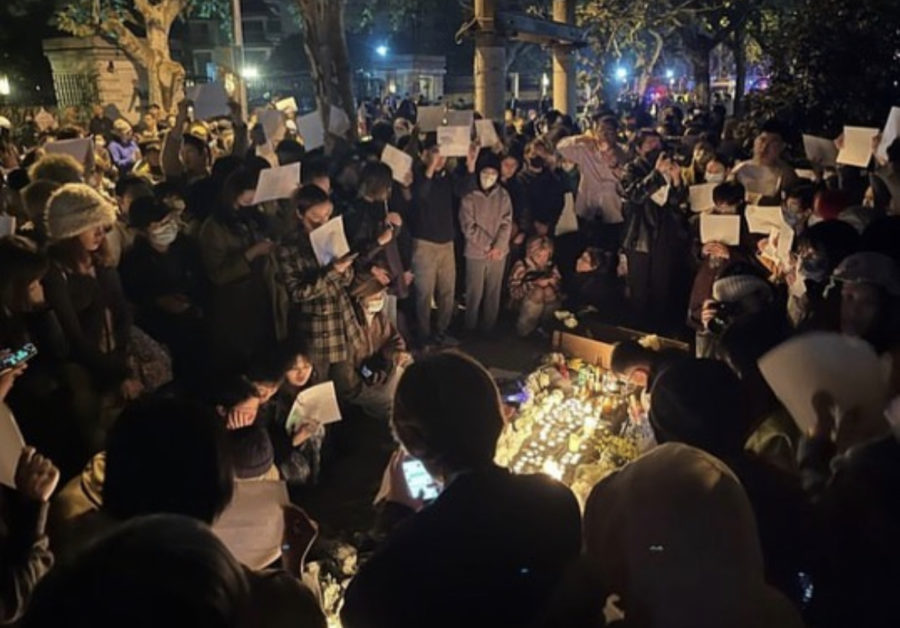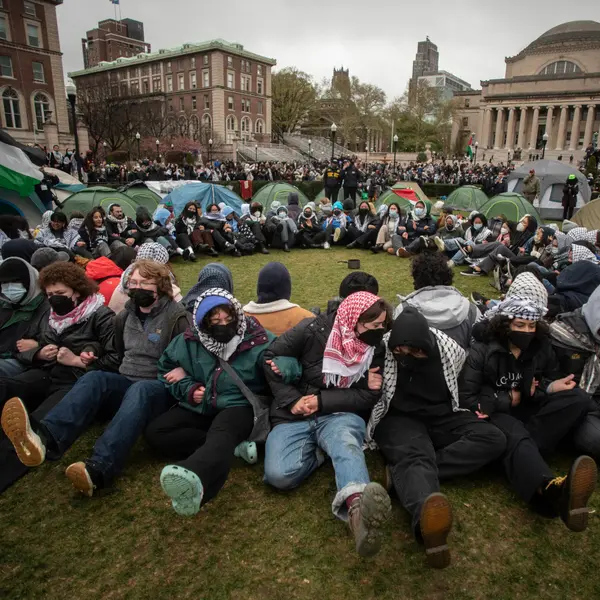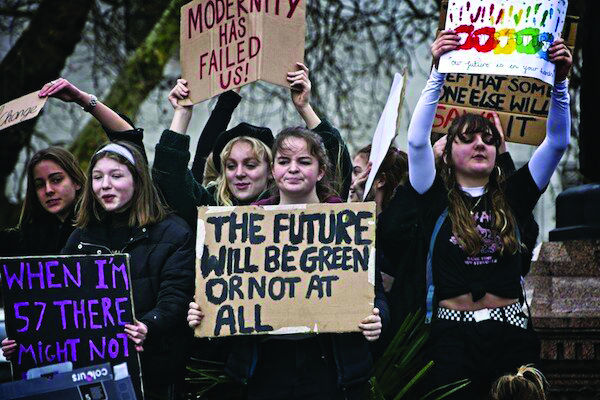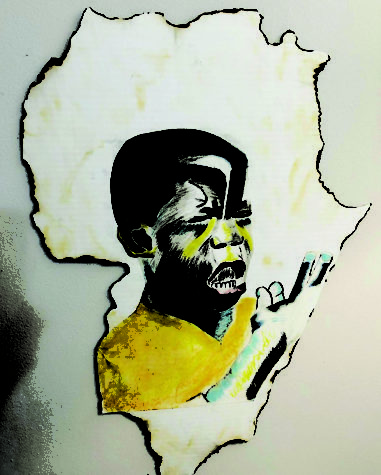Response to China’s new COVID-19 policy
Photo by Courtesy of @northern_square on Instagram
Residents in Shanghai gathered at Urumqi Rd to commemorate people perished in the deadly fire in Urumqi, Xinjiang, holding a white paper in their hands to show support for the A4 Revolution.
February 8, 2023
On December 7, 2022, the Chinese government lifted the long-lasting Zero-Covid Policy, which gave rise to a massive outbreak of pandemic all over the nation. China’s Zero-Covid Policy, an approach the government adopted to suppress the spread of Covid infections nationwide for about three years, aimed to eliminate all cases through lockdowns, quarantine, and travel restrictions. To achieve this, the government established lockdowns of buildings, communities or even cities as soon as covid cases were detected. Major cities like Shanghai had been in lockdown for several months. Covid testing has become a daily iteration for Chinese citizens since they were all tracked by apps that record their movements Covid test history. People who tested positive for Covid had to be moved to government facilities or hospitals; even the people near them had to be quarantined. Harry Luo 24’, a Chinese international student in LFA, said, “Due to the covid restrictions, returning to China after summer immersion programs only allow me two weeks, and most of this will be eaten up by quarantines. Despite being homesick, this is the main reason why I didn’t return.”
For Zero-Covid Policy’s removal, the tracing apps discontinued their service, Covid testings were no longer mandatory, and people traveling from a foreign country were no longer restricted upon arriving in China. David Yao ’24, a Chinese student at LFA, said “The covid policy is relaxed now in China, I don’t have to worry about buying a plane ticket, and I don’t need to be quarantined, which enables me to reunite with my family and friends earlier.”
Although the sudden loosening of Zero-Covid Policy may seem abrupt, waves of protests of Chinese citizens occurred in the late November in 2022 indubitably accelerated the denouncement of the government’s stubborn and inflexible Covid measures. The restricted policy has not only burdened people with tremendous inconvenience but also with disasters. On the night of November 24, 2022, a deadly fire that broke out in Urumqi caused the outburst of protests, expressing the long-simmering discontent of this policy. Due to the unaccommodating policies, it took firefighters that had been sent to the neighborhood three hours to extinguish the blaze. Besides, some residents were afraid to leave the building as “without permit it will violate the law even if the building gate is not locked.” A man in a residential compound near the fire said to the BBC (British Broadcasting Company).
To mourn those who lost their lives in the Urumqi fire, the A4 Revolution started. It is one of the one of the boldest and broadest revolutions, symbolizes the “blank A4 paper,” which represents a form of silent rebellion and the long shuffling of justice in China. The A4 Revolution did not only happen on the scattered streets of big cities; students from universities and colleges across the country also voluntarily joined the revolt by holding up protesting white papers. There have been 23 demonstrations of revolt in 17 different cities within mainland China, sweeping across the country with great conviction.
Nevertheless, China’s new Covid chapter brought by the loosening policy also has its downside: While the previous lockdown provided a short-term defense of covid, most citizens stayed extremely vulnerable due to the absence of exposure to the disease. Since early December in 2022, 60,000 people have died of Covid in less than two months. As the sudden shift of Covid policy has left its Chinese citizens and health facilities unprepared—a huge shortage of medicine was faced by various citizens, who then were limited to only six tablets per day in the drugstore in many places, some long term effects on Chinese economy and social life after the loosening of Zero-Covid policy is still unforeseen.
















